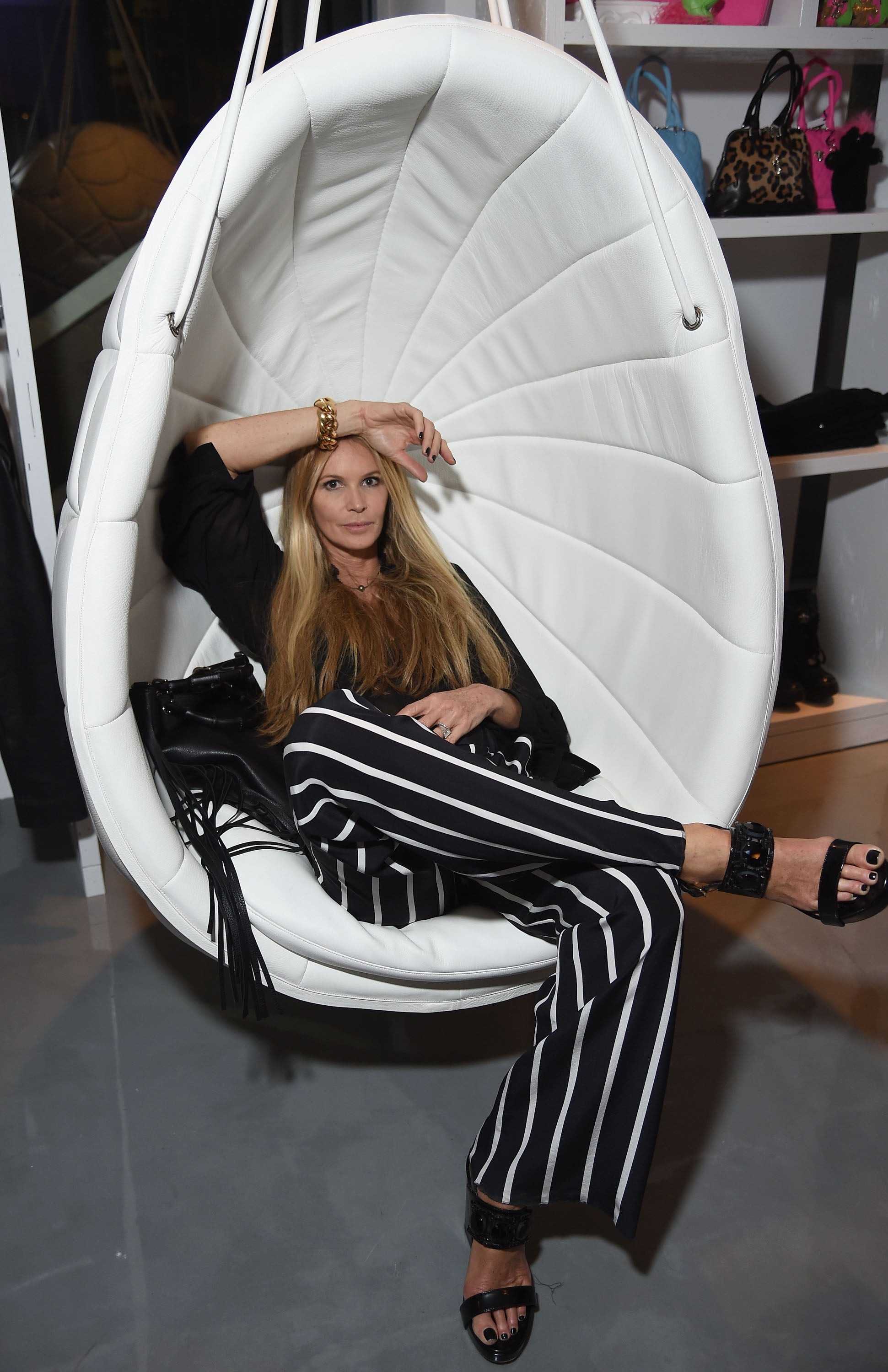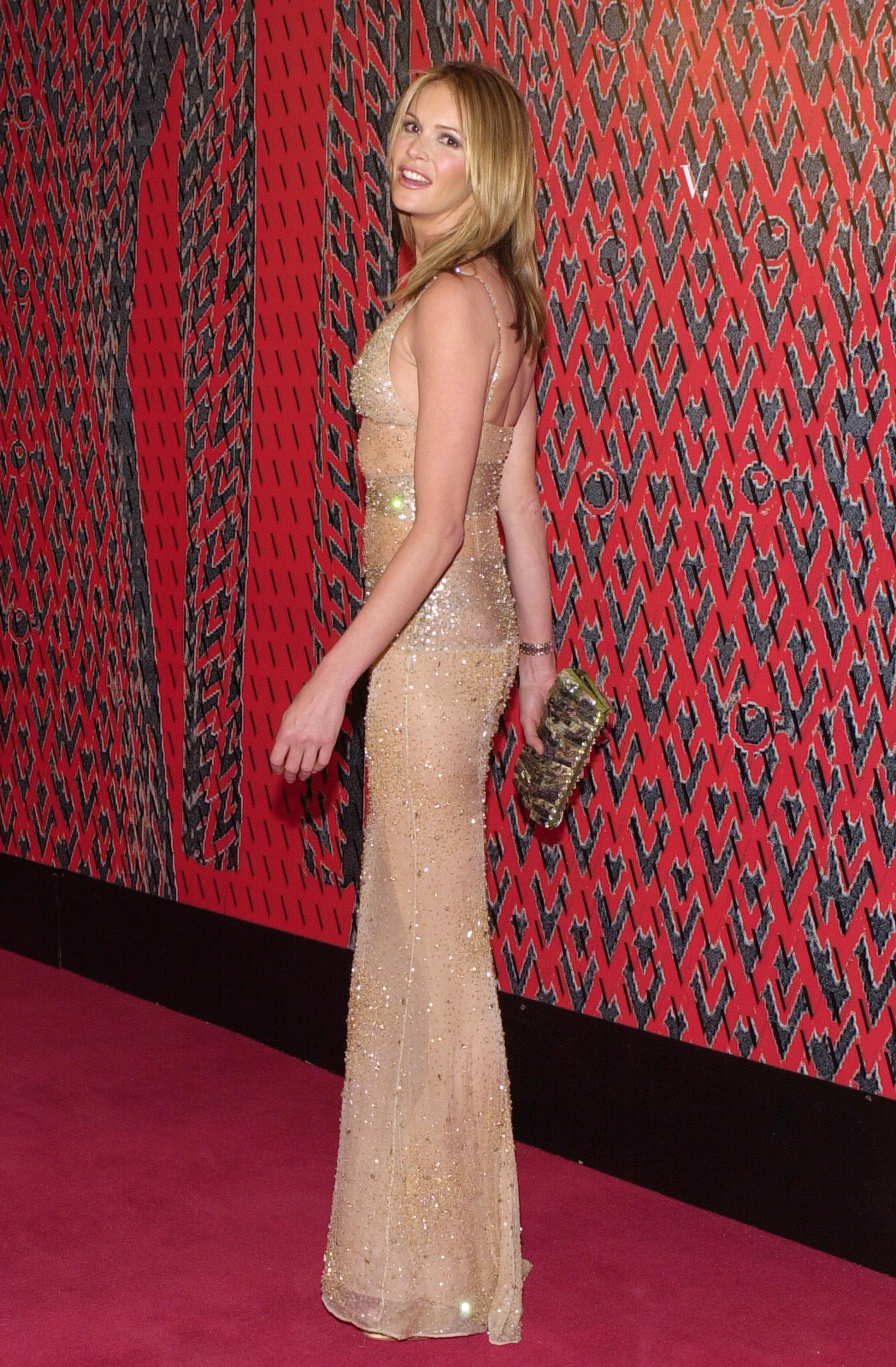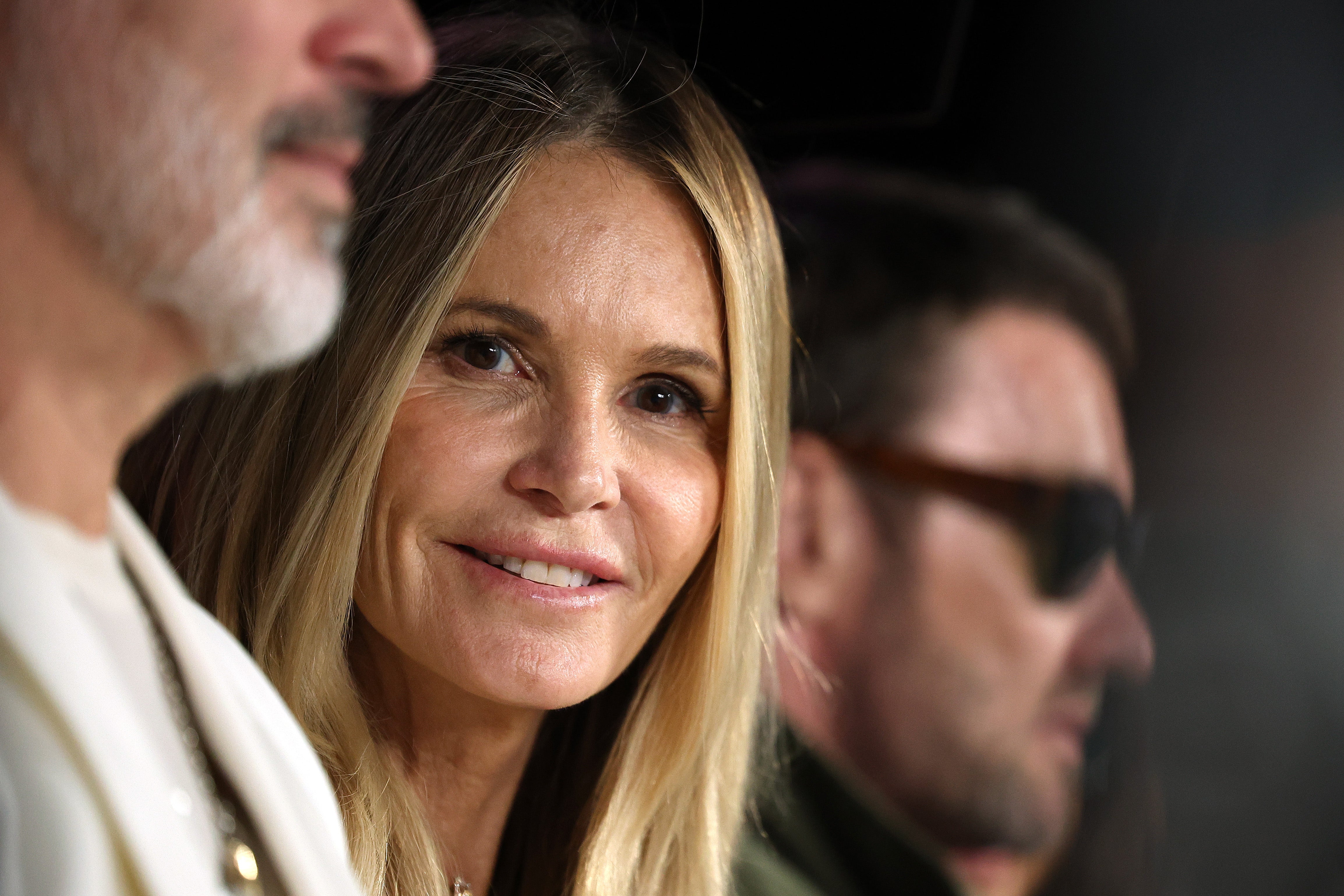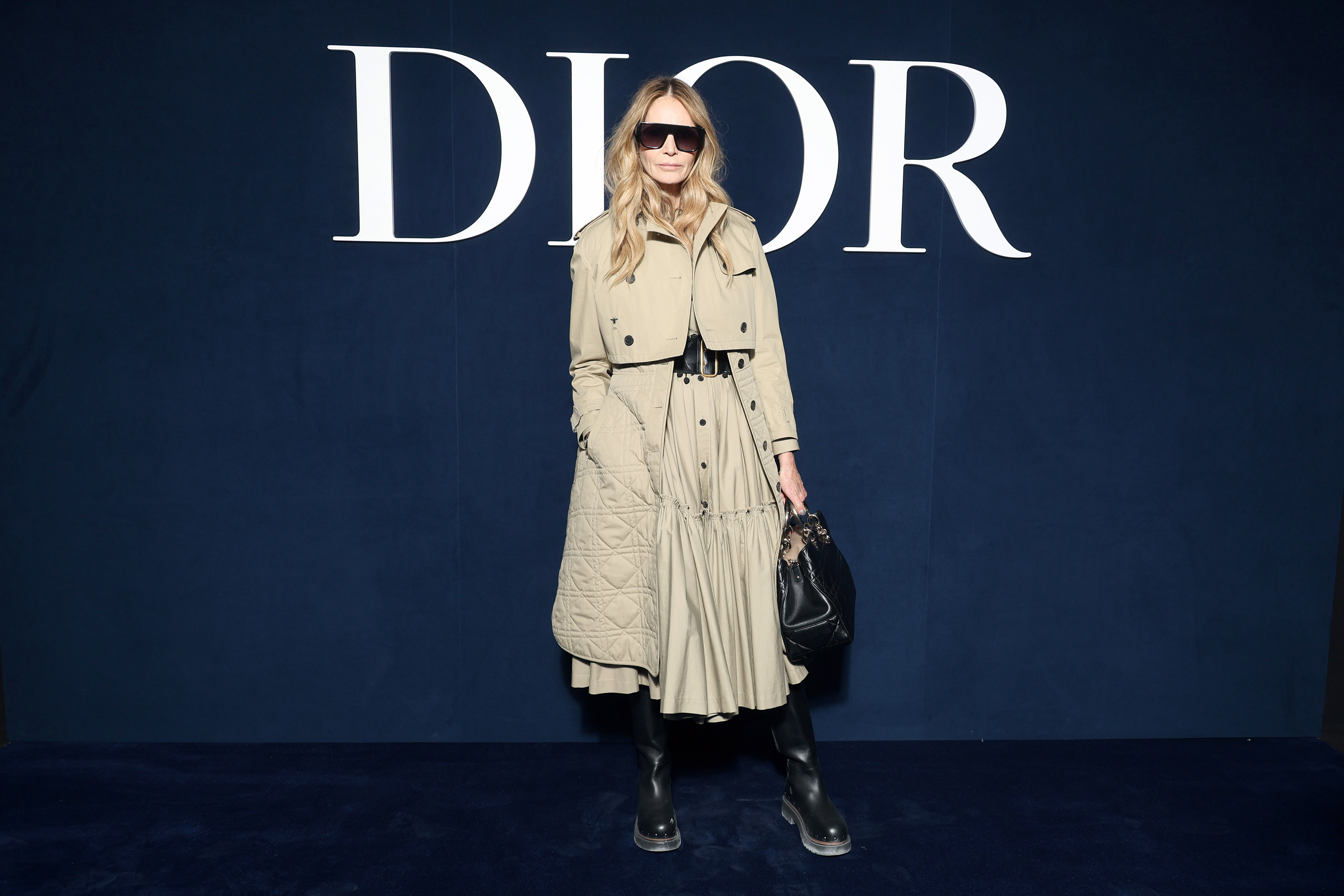Elle Macpherson, the anti-vaxxer relationship and the dark side of wellness
She was the supermodel known as The Body, but since her fifties has been increasingly drawn to the wellness industry. But with her recent comments about rejecting the advice of 32 doctors over her cancer treatment, is there a darker side to the alt-wellness trend? Zoë Beaty explores


According to Elle Macpherson, if you want to be beautiful, and waif-like; if you want confoundingly good bone structure and to transcend the natural ageing process you can have it all. The hair, the face, The Body (the moniker Macpherson gained early on in her career) – listen to this supermodel and it has nothing to do with lucky genes, and everything to do with a mindset and an “alkaline diet”.
According to Macpherson, there are alternative remedies to defy all manner of common, biological human experiences. Like cancer, for example.
While promoting her new book, this week Macpherson, 60, revealed in an interview with Australian Women’s Weekly that – after consulting with 32 doctors – she rejected some conventional treatment after being diagnosed with breast cancer seven years ago. Aside from a – notably conventional – lumpectomy she chose a more “holistic” approach, she told the magazine, and didn’t undergo any chemotherapy.
“It was a shock, it was unexpected, it was confusing, it was daunting in so many ways,” Macpherson said. “And it really gave me an opportunity to dig deep in my inner sense to find a solution that worked for me.
“People thought I was crazy but I knew I had to make a choice that truly resonated with me,” she continued. “To me, that meant addressing emotional as well as physical factors associated with breast cancer. It was time for deep, inner reflection. And that took courage.”
Dealing with cancer of any kind certainly takes courage. Macpherson, as anyone has the right, dealt with her diagnosis in her own way. However, her very public narration of what happened next has quite rightly come under scrutiny. “I never blamed myself for having cancer. Until I read Elle Macpherson’s book,” read one Sydney Herald headline this week. She was widely criticised for espousing “junk ‘cures’”, with experts pointing out that there is a real risk to rejecting healthcare. A 2017 study found that those with cancer who chose alternative medicine for their primary treatment had a greater risk of death in five years than those who chose conventional treatment.
While there was a grave lack of clarity over her diagnosis and subsequent treatment, Macpherson has stock in the world of alt-wellness. Barely an interview goes by where her brand Welleco’s £63 tub of “Super Elixir™” – a plant-based “daily greens” powder – isn’t given the hard sell; she’s often talked about consulting a “naturopath”, a person who practises alternative medicine. QuackWatch, which aims to “combat health-related frauds, myths, fads, fallacies and misconduct”, and the US National Council Against Health Fraud has stated that naturopathy is simplistic, riddled with pseudoscience and widely discredited.

Macpherson also raised some eyebrows when she had a two-year relationship with disgraced former doctor Andrew Wakefield. Wakefield was struck off as a doctor in the UK making fraudulent anti-vaccination claims and caused a decade-long low-uptake of vital medical treatment for children. Macpherson dated the anti-vaxxer from 2017-2019.
“I compare him to a supervillain,” Timothy Caulfield, professor of health law and science policy, and author of The Science of Celebrity… Or Is Gwyneth Paltrow Wrong About Everything. “This guy is unbelievably damaging. You almost can’t overstate it, the harm that this individual has done.
“He is really the new wave of the anti-vaccination hesitancy that’s sweeping the world and is killing people, mostly children. And again, that sounds like an overstatement, but we know it’s true.”
Caulfield has spent his career investigating, exposing and debunking misinformation around wellness; his latest grant will fund crucial research into misinformation around cancer. “In that world, he’s held up as a hero, someone bravely speaking against the mainstream media narrative. I’ve spent a long time investigating this world.”
The trouble is that, between TikTok’s junk theory free-for-all, Telegram’s conspiracy vacuum and the ever-expanding con of spirituality, alt-wellness is now almost normalised. While once it would have seemed preposterous that something as simple as eating well, exercising and “living clean” could become immoral, a significant chunk of wholesomeness has fallen down the rabbit hole of far-right ideology. Spirituality – wellness woo – is on a slippery slope. And celebrity endorsement is increasingly a part of the problem.

Brands built around celebrity health advice, especially in the multi-trillion-dollar wellness industry ecosystem, are now extremely common. And a number of people find comfort, purpose and significantly healthier lives because of it. Many swear by Macpherson’s WelleCo products as a useful way to improve their skin and overall health. Yet, there is a big difference between recommending something to give your skin a glow and becoming the poster girl for shunning conventional cancer treatment.
Despite stating that she was not blindly recommending that other women follow her lead, experts and survivors say the damage has already been done. “There are a few forces at play there,” Caulfield explains. “First, illusory truth theory – that just being exposed to something enough can make it feel plausible.
“Elle Macpherson is a good example of another technique – they’re telling a story. It’s a powerful narrative. And then you have the element of cures and denouncing, or creating a critique of the conventional system – negativity bias.
“The idea that there’s something bad, something evil, and then the more pure, natural path. Again, that can be a really powerful tool.”
This type of misinformation can be so penetrating because it often reaches people when their defences are down. Being rendered vulnerable by health conditions drives us to seek comfort and solutions. In the last few years, we’ve seen it more clearly than ever – the global pandemic grew anti-vax conspiracists at the same rate as insecurity and fear.
And, anyone who has looked cancer in the eye knows that, in these scenarios, thinking becomes very black and white. When life shrinks down to its barest meaning – to live, or to die – the idea of risk is muted and our capacity to accept ideas we’d usually shrug off widens.

Caulfield explains, “People get attracted to alternative medicine not necessarily because they think there’s something magical there, but because they are looking for something that works. They’re desperate.”
But, he says, that can often be just a gateway to more extreme views. “They start trying alternative medicine, they become part of that community, and then they start adopting the philosophy, right? And you start to believe more misinformation.
So why the sudden rise in alternative remedies? One factor is the state of conventional health care around the world, Caulfield says. As part of his work, he’s spent time immersed in alternative medicine to get a better idea of it. His experience has always been good “without exception”, he says. “If someone’s paying attention to you, they’re listening at you, they’re looking at you, they’re providing comfort – that feels good, right? And I’m someone who knows it’s all bullsh**. You go to a conventional doctor and you’re rushed, they’re not listening to you.”
There’s obvious appeal. Macpherson’s book – her musings on “life, lessons and learning to trust yourself” – will be out by the end of the year. Millions will likely read it and enjoy it. But before claims like Macpherson’s are taken at face value, it’s probably best to get a second opinion.



